This inability to sell directly sounds like a cheat favoring Tesla, but Tesla has the same problem: they are also not allowed to sell directly. Fixing this would also be his priority, with Musk calling the shots in Washington. Still, he doesn’t seem to be focused on Tesla (The Charger rollout funded by the Department of Transportation was just killed despite Tesla being the second-largest beneficiary).
So what is the problem? Why can’t car companies sell to buyers? Toyota also wants to do this, and Porsche has been talking about doing the same thing.
Why Car Companies Can’t Sell Direct
I looked into this back when Tesla was founded because I couldn’t understand why it could sell directly in some states and countries but was blocked in many, if not most. While there was a lot of argument about “protecting car dealers,” car dealers are a channel, and I did a lot of my graduate work and professional work on channel management. These restrictions only seem to apply to cars (and maybe boats) but not to any other product class I could see.
You can buy PCs, Appliances, and a lot of other products directly from the manufacturer; in some cases, you might instead use a retailer because you don’t want to install the product yourself or want localized service, but a localized company store could provide that just as well as a retailer.
Even Apple has its own stores, which has worked out well for them even though you can also buy Apple products in many other stores.
The reason is who owns the dealerships. I can’t speak to the rest of the world, but the States in the US that don’t allow car makers to sell directly the dealerships are owned mainly by politicians, which makes these laws preventing direct sale suspect, in that they aren’t designed to be best for the car companies or car buyers, you know the people who are supposed to have the power in a democracy, but primarily only benefit those elected into power. This appears to me to be self-dealing; typically, politicians aren’t allowed to do that.
In 2009, GM and Chrysler wanted to discontinue working with 2,000 dealers all over the U.S. Congress threw its collective weight behind the effort even though it would have made the two car companies more financially successful. It would also have been better for the industry to have fewer dealers who made more money. It would have eliminated dealers who were poor performers or used questionable practices.
Dealers Pro-Con
The advantage of a dealer model is that the person who typically owns the dealership is, or will be, a person of power in the community, and the dealer can better focus on the needs of the local community because they are part of it.
The disadvantage is that the dealers are loosely coupled with the company and can have a massive impact on the brand. If your dealers rip off customers, mistreat them, or perform poorly, it reflects on the brand, and the car companies have little recourse.
This can be a massive problem if you are trying to resolve a problem because the Dealers aren’t part of the car company. They may not understand what is happening, and thus, they are less able to correct a problem on time than the Car Company could do.
In addition, times have changed; with AI, a company can appear more local, and larger firms can better afford modern Agentic AI tools (these would handle calls and customer interactions) than any dealer could. Finally, with centralized control and management, you can better contain misbehaver by service organizations and better train customer-facing people because you have a scale for employee training centers.
My wife used to get a kick out of shopping with me for cars because I typically knew more about cars than the sales rep. This wasn’t because I was exceptionally bright but because the sales reps were poorly trained. I recall arguing with a sales rep who didn’t believe the car I wanted to buy, covered in Car & Driver, existed.
This doesn’t mean there aren’t good car dealers, there are, only that they add a lot of cost and with China moving aggressively to take the automotive market, making Western Car companies less efficient through self-serving laws would seem to be colossally stupid because if those car companies fail the dealerships fail as well. So, what is truly being protected?
Wrapping Up:
Apple and Tesla have showcased that buying direct can be a far better experience for the company and its customers than exclusively using a dealer network. I did surveys of customer satisfaction in the Apple stores, and it was clear that Apple had a high-quality score because of their stores. Companies like Dell sold indirectly and had far lower scores even though the breakage stats between the two companies were similar. Apple controlled their stores' sales and service experience, and Dell couldn’t because the stores weren’t theirs. Even in looking at Apple satisfaction, the score was far higher for those who bought in an Apple store over those who bought in other retail stores, again because Apple could assure their store but couldn’t assure (even though they’d often do a store within a store concept to address this) the experience to the same level.
Scout and Telsa are right to want to sell directly. Given the threat the Chinese car companies represent, I also think the health of the US Auto Industry will depend on their ability to sell directly to customers rather than through a dealership network.
Set Torque News as Preferred Source on Google


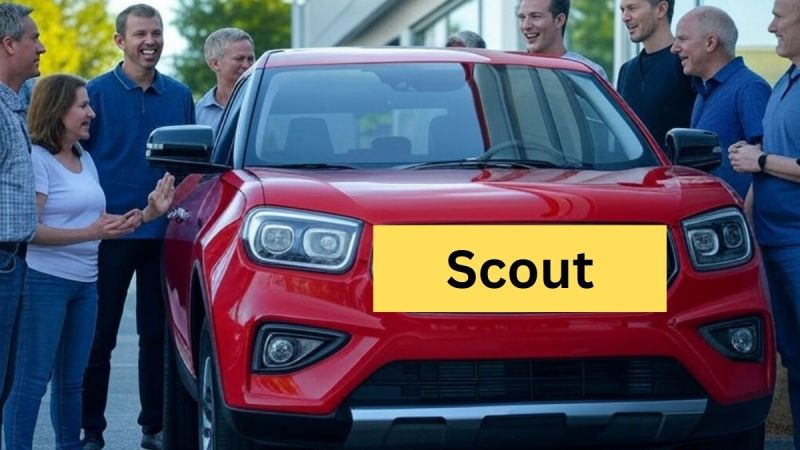




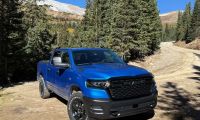
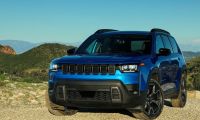
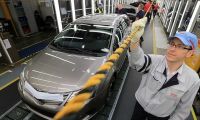
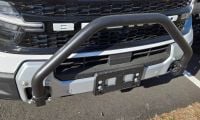
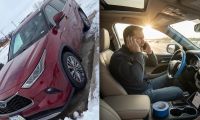
Comments
Sure seems like BYD is a…
Permalink
Sure seems like BYD is a long way ahead of other companies and can bring new offerings to market in less time than the competitors. Seems unfortunate that the Americans and Canadians view the products from China as a threat to National Security. Yet it's seemingly ok for every other product to be soked in both countries. They say climate change is our greatest threat and nothing should be a higher priority than EVs . But not those that people can afford. Hmmmm
I have to disagree with you…
Permalink
I have to disagree with you there. China will own the EV market because they make there cars at a lower cost and they incorporate all the technologies they can get their hands on. Like for example I have tried to engage with the Scout CEO about our onboard, on demand EV battery recharging system and haven't heard anything. But I have had 3 China EV manufacturers VP's reach out to me. Now I won't do business with China but there seems to be a disconnect here don't you think?
Everyone knows that Dealers…
Permalink
Everyone knows that Dealers have hammers in their executive offices. They are historic figures in Massachusetts. What will DOGE doggy do about this?
Car manufacturers are able to afford free weekends like the Time-share racquet. You visit, pet the ponies, enjoy decent dining and entertainment, and truly drive your new vehicle down the race track country course with tremendous scenery. Home is 4,000 miles away, Oops, their customer wants that car where they live. Through virtual $Currency trickery the car they ordered is in stock and can drive itself to their homes. What a pleasant buying experience, a peasant's dream.
A new approach is going directly to demand with vetted suppliers.
I don’t understand the the…
Permalink
I don’t understand the the connection between Scout not being allowed to sell DTC and Chinese brands taking the market? In China most EV brands sell DTC with showrooms and sales center set up in shopping malls, this is a direct copy of Tesla tactics. Many of the tradition edge of town dealerships and car showrooms are standing empty.
My point was that in the US,…
Permalink
In reply to I don’t understand the the… by Steven Helle (not verified)
My point was that in the US, Tesla is even barred from doing this in many red states because politicians own dealerships. I agree that China and parts of Europe have more successful DTC efforts (China doesn't sell many cars in the US due to sanctions and tariffs).
My daughter has recently…
Permalink
My daughter has recently bought an MG - Chinese owned, but I believe made in Taiwan? £325/month lease deal. ( no deposit) I can’t fault it! Plus, it saves her a fortune as her daily use means exclusively home charged. Make EVs cheap enough and people WILL buy them.
How does she like her MG? If…
Permalink
In reply to My daughter has recently… by Nigel Boycott (not verified)
How does she like her MG? If it were sold here, I'd be tempted to buy one (the sports car); it looks like an excellent ride and a great value.
To be clear, China already…
Permalink
To be clear, China already own the EV market, 60% market share and massive % of critical battery materials. Unfortunately, the U.S. cannot catch-up in the short-term and needs long-term commitment & collaboration in order to do so.